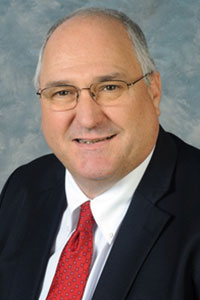
FRANKFORT, Ky. — A proposed bill to phase out the Legislators’ Retirement Plan was given its first public hearing this week.
“This, if it is ultimately passed, will be the beginning of the end of the legislative retirement plan,” said Rep. James Tipton, R-Taylorsville, while presenting the proposed measure to yesterday’s meeting of the Interim Joint Committee on State Government. “That is my goal.”
The proposed legislation would not affect members of the County Employees Retirement System, State Police Retirement System, Teachers’ Retirement System, Judicial Retirement Plan or other members of the Kentucky Employee Retirement System, commonly referred to as KERS.
“It would only impact current and future legislators,” Tipton emphasized.
Currently, legislators have a choice of participating in the Legislators’ Retirement Plan, known by the acronym LRP, or the KERS non-hazardous plan. Tipton’s proposal would “effectively close” the LRP to any legislator taking office after July of next year. It would also allow future legislators to opt-out of the KERS non-hazardous plan.
Legislators who took office after 2013 would be transferred to the KERS non-hazardous plan in December of next year unless they opted out of the retirement system entirely.
Tipton said a downside to the proposed legislation is the KERS non-hazardous plan has a higher employer contribution rate, but an upside is that such a change would benefit the KERS non-hazardous by adding members to the plan.
“The KERS non-hazardous is currently funded at 12.9 percent,” Tipton said in reference to its underfunding. “It needs every dollar it can get.”
Legislators who took office before 2014 would not be forcibly removed from LRP, Tipton said. Those legacy participants would, however, have an option to transfer to the KERS non-hazardous plan or stop participating in the retirement system.
The proposed legislation would also prohibit the General Assembly from funding the LRP until it has a funding level that is equivalent or less than KERS.
“Why should we be funding our system when we have a system out there funded at 12.9 percent?” Tipton said.
Rep. Jerry T. Miller, R-Louisville, said the last provision of the proposed legislation to freeze the LRP funding has “been close to his heart for a while.”
Miller, who chaired the meeting, added that he endorsed that provision “wholeheartedly.”
Majority Floor Leader Sen. Damon Thayer, R-Georgetown, said he supported another provision that would “repeal the spiking initiative that allows former legislators to spike their pension by going to the executive or judicial branch.”
Thayer said he appreciated the comprehensive approach Tipton took in drafting the proposed legislation but that it doesn’t address the underlying problem facing Kentucky’s public pensions.
“If we pass a bill like this, I think the public needs to understand that it will make a lot of people feel better, but it will not make a material change in the unfunded liability for our pensions,” he said.
Rep. Derrick Graham, D-Frankfort, and Rep. Joe Graviss, D-Versailles, expressed concern the proposed legislation could jeopardize the inviolable contract. That refers to language within state law that guarantees some pension recipients and public employees get the benefits promised when they were hired.
Sen. Dan. “Malano” Seum, R-Fairdale, said he was concerned that reducing legislators’ benefits would discourage “blue-collar” Kentuckians from running for a seat in the General Assembly. He said someone who isn’t rich might not have the financial means to put in the time required of legislators. He added that eliminating the LRP could exasperate the financial strain for some.
“That is one of the questions that have come up about recruiting well-qualified candidates to run for the general assembly,” Tipton said in response. “Everyone knows this is not a part-time job. I’ve gone home and put out hay at night after session in the dark because my cows were hungry.”
Tipton emphasized that future legislators would still have the option to participate in the KERS non-hazardous plan.



















Add Comment